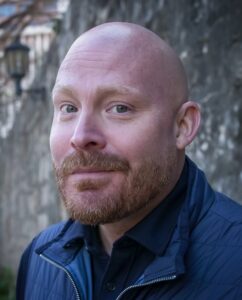Active Capital, a San Antonio-based solo GP venture firm, has closed on its third fund — a $28 million vehicle aimed at investing in enterprise AI and cloud infrastructure startups at the pre-seed stage.
The fund brings Active Capital, which was founded by Pat Matthews, to more than $100 million in assets under management across three funds and several Special Purpose Vehicles, or SPVs, it raised to double down on “breakout companies.”

Prior to starting Active Capital, Matthews founded Webmail.us, which sold for $50 million to Rackspace in 2007. It’s his background that led him to start Active, which he operates on the premise that “founders would rather raise early capital from those who’ve walked in their shoes.”
Active’s first fund has so far returned nearly 70% of capital, with total value to paid-in capital approaching 4x, according to Matthews. To date, the firm has backed more than 50 startups across the country, including companies such as ProsperOps, Teleport, Super Dispatch, ConductorOne and Schematic. Several of its portfolio companies have been acquired over the years, including RemoteTeam (by Gusto) and VidGrid (by Paylocity).
The firm leads or co-leads pre-seed rounds, with an average check size of $500,000 to $1 million in deals that range in size from $500,000 to $3 million. All of its LPs are “entrepreneurial” — either individuals or family offices. Active also favors startups led by technical founders.
The firm’s latest fund closed as U.S. pre-seed funding reached $556 million across more than 600 deals so far this year, Crunchbase data shows. That is down from $733 million across more than 1,200 deals for the same time frame in the U.S. in 2024.
Crunchbase News recently asked Matthews some questions via email to learn about Active Capital’s fundraising strategy in an environment that has been favoring larger fund sizes and rounds.
Why pre-seed exclusively? What are the challenges and opportunities at that stage?
Pre-seed is the most fun and foundational stage of a company. It’s where the DNA gets formed. Early capital at this stage comes from early believers, and the relationships that get built between founders and those early backers can be uniquely deep and lasting.
I also see a huge market opportunity in pre-seed. There are very few pre-seed focused firms, especially those investing outside of the usual tech hubs. And I believe many of the most successful companies in the future will raise a pre-seed round and never raise again. This is already playing out with several of our top portfolio companies.
What are some of the trends you’re seeing at pre-seed and seed, and what excites you?
Obviously, AI dominates headlines and I think everything moving forward will be AI native or AI at the core. I think AI is creating a whole new category of vertical software/SaaS companies that can go way deeper than ever before. We just invested in a legal tech company in Texas, for example, that wouldn’t exist without AI.
The infrastructure and security layer needs to be reshaped as well. We’re investing in AI-powered developer tools, data infrastructure, cloud security, etc. We recently invested in a modern data lake startup in SF, for example.
Trendwise, and as I alluded to above, I’m also seeing a resurgence in bootstrapped mindsets at pre-seed. Founders today are more thoughtful about burn, business models, and path to profitability (while maintaining growth), which I think is a direct reaction to the craziness of the last cycle and the efficiency that AI brings.
Why are you based in Texas, and where do you look for companies to back?
I’m based in Texas because this is where I live. I moved here 15 years ago after Rackspace, which is headquartered in San Antonio, acquired my company. Since then, the Texas startup community, especially in San Antonio, has been incredibly supportive.
When I started Active, it was with the belief that great companies can be built anywhere and we’ve seen that play out. We invest across the country, with portfolio companies in places like Austin, Kansas City, Atlanta, and of course New York and San Francisco. There’s no denying that a lot of the AI ecosystem is being built in San Francisco, so I’m spending more time there too.
At the end of the day, I care more about great founders than any one geography — big or small.
How did you raise in this fundraising environment and why did you all “intentionally” not “scale up AUM”?
We raised this fund the same way we’ve always raised, which is directly from founders, operators, and entrepreneurial families who believe in what we’re doing. It’s definitely a tougher environment than it was a few years ago, but I think that actually plays to our advantage.
We’ve stayed focused, delivered real results, and built long-term trust with our LPs. I was also patient. In a perfect world I would have raised this fund a year or two ago. But I knew the macro [environment] was very bad and I wanted to give our portfolio time to mature and our investors time to breathe. I think everyone appreciated this.
As for AUM: I believe in small funds. You can’t really be a pre-seed focused investor if you raise bigger and bigger funds. I’ve also had a successful career as an entrepreneur so I don’t need to get rich off fees. When I started the firm I told my investors that all the data shows that small funds perform better than big funds and that I was committed to staying small and disciplined on fund size. I think investors will be extra supportive when you actually do what you say you’re going to do.
Related Crunchbase query:
Related reading:
- Far Fewer Seed-Stage Startups Are Graduating To Series A — Raising The Risk Of Failure
- What’s The Bare Minimum Needed For Pre-Seed Funding?
- How To Leverage Your Pre-Seed Funding For Rapid And Successful Growth
Illustration: Dom Guzman

Stay up to date with recent funding rounds, acquisitions, and more with the Crunchbase Daily.





![Illustration of a guy watering plants with a blocked hose - Global [Dom Guzman]](https://news.crunchbase.com/wp-content/uploads/quarterly-global-3-300x168.jpg)
67.1K Followers